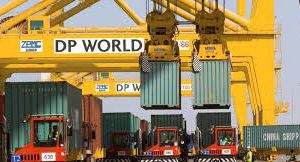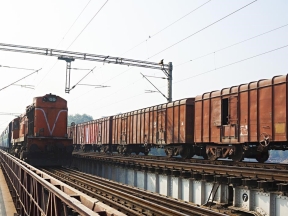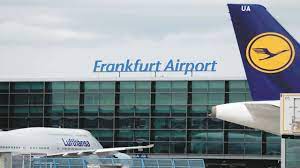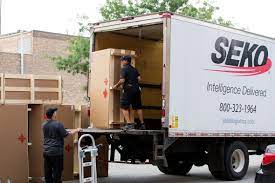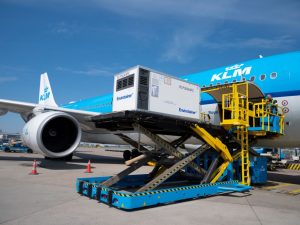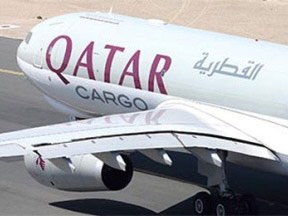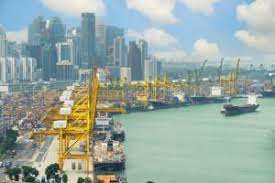Cargoes Customs provides an intelligence-enabled, unified customs operating model that optimises border management and revenue collection activities. The system empowers customs agencies to facilitate trade, secure global supply chains, and increase compliance. At the same time, it minimises revenue leakage for government agencies. The platform is built to assist global customs organisations in reforming and modernising processes by streamlining digital transformation through the latest technology and tools. The Cargoes Customs platform is based on the belief that with technology as a foundation, any customs organization can vastly improve its digital capabilities and better integrate with key agencies and other countries, while also satisfying any regional agreements. The system is further enhanced by its powerful risk engine which detects revenue leakages. This technology improves visibility and traceability, and is based on WCO best practices, thereby optimising the customs clearance process. As an intelligent risk engine, it helps enforce compliance and promotes seamless collaboration between authorities, government departments and stakeholders. Sultan Ahmed Bin Sulayem, group chairman and CEO of DP World, said: “Trade is a key driver to help economies around the world to recover fairly and sustainably from the economic shock of the pandemic. At DP World, we are doing our part to make trade flow as smoothly and seamlessly as possible, and with Cargoes Customs we really help customs authorities around the world to become dramatically more efficient – now and for the long term. This new digital solution connects customs officials and traders through an easy-to-use interface and a suite of custom-built tools. We will continue to invest in our digital platforms to bring simplicity, transparency and efficiency to global trade – at customs, and beyond.”
Read More »‘Hungry for Cargo’ railways mission to improve it’s freight share
Railways has started “Mission Hungry for Cargo” targeting 45 per cent modal share in freight transportation from the current 27 per cent. In the past 50 years, a considerable portion of total traffic was taken away by road transport despite the Railways being the most efficient means of inland bulk transport. Market share of Indian Railways in goods transportation has reduced to only 27 per cent. The national transporter is left with coal, cement and iron ore as only a few major commodities where railways commands bulk market share. However, even for this bulk traffic, Indian Railways is now facing the threat of high capacity road trailers and coastal shipping. Cement from Gujarat to south India, transportation of coal to power plants in Tamil Nadu has started from Paradip port. Iron and steel plants have moved from rail to road due to smaller batches and timing of supply offered by road. In order to reverse the trend, the Railways has undertaken concerted efforts introducing new initiatives targeting 45 per cent modal share of railways in freight transportation from the current 27 per cent.
Read More »Gati Shakti aims to improve trade potential of Northeast
The recently announced Prime Minister of India’s Gati Shakti National Master Plan for Multi-Modal Connectivity is all set to revolutionise the way infrastructure and logistic development projects are planned and implemented in India. It will bridge huge differences between macro planning and micro implementation. The Northeast region of India, comprising eight states, namely Arunachal Pradesh, Assam, Manipur, Meghalaya, Mizoram, Nagaland, Sikkim and Tripura, share almost 12,000 kilometres of international border with Bangladesh, Bhutan, Myanmar, Nepal and Tibet, and is connected with the rest of India by a narrow chicken-neck, having a width of approximately 20 kilometres, which is popularly known as the Siliguri Corridor in West Bengal. This has primarily kept the Northeast India’s trade potentiality under-utilised, which is understood to be much more than the realisation of Rs 3,577 crores in 2019-20 and Rs 3364.4 crores in 2020-21 as per the data as provided by the Directorate General of Commercial Intelligence and Statistics, Government of India. As a result of this, there is a thrust on implementing a large number of Union and State Government funded infrastructure development projects in Northeast India with the purpose of improving its internal as well as external connectivity. As per the MoSPI, there are 143 ongoing projects in Northeast India, worth an original budget of Rs. 97,418 crores in the beginning of 2021.
Read More »Matchlog raises $3mn to decarbonise the shipping industry
MatchLog, a digital first container logistics optimisation platform, has raised USD 3 million in its pre-series A round through Blue Ashva Capital, a leading Singapore and India-based VC, Rainmatter Climate, and Capital-A, a Bangalore based early-stage investor. The capital raised will be deployed to develop the tech platform further for AI and machine learning based pairing of cargo across India, grow the multi-modal share in addition to road transport and expand its footprint to more ports in India and around the world. MatchLog is the first company in India that offers at scale the ability to turnaround a container from an import to export cycle, thereby eliminating unnecessary empty runs to and from the container yards. MatchLog’s work results in significant fuel savings and directly contribute to the decarbonisation goals of the shipping industry. In 2021 alone, MatchLog saved 1 m + kgs of carbon emission through its efforts. MatchLog has also been able to develop strategic inroads with leading custom house agents, freight forwarders and transporters that ensures higher adaptability and acceptance by the trade at large.
Read More »Frankfurt airport handles record cargo volumes in 2021
Frankfurt Airport handled record volumes of cargo last year despite a reduction in bellyhold capacity. The German hub – which is also the largest cargo airport in Europe – handled a record 2.3m metric tons of cargo last year. This figure is up 18.7% on 2020 levels and 8.9% ahead of the pre-pandemic year 2019. The airport said that airfreight was the main driver behind this growth, while airmail continued to be affected by the lack of belly capacity on passenger aircraft. Airport operator Fraport’s chief executive, Stefan Schulte, said: “Throughout 2021, the Covid-19 pandemic continued to have a massive impact on Frankfurt Airport. Passenger traffic recovered gradually in the course of the year – even rising threefold in the April-to-December 2021 period compared to 2020 – but we are still far away from the pre-pandemic levels of 2019. Cargo traffic, in contrast, saw very positive growth in 2021. Airfreight volumes in Frankfurt even reached a new annual record, despite the ongoing shortage of belly capacity on passenger flights and other challenges. This underscores our role as one of Europe’s leading cargo hubs.”
Read More »Seko Logistics launches e-commerce unit ‘Seko ECommerce’
Seko Logistics has launched a new e-commerce business unit as it looks to grow cross-border e-commerce volumes. The new business unit, Seko ECommerce, will offer four core solutions: international e-commerce shipping and delivery services; e-commerce fulfilment; parcels returns and re-commerce and heavyweight e-commerce shipping and last mile delivery. The new business unit will primarily work with fashion, beauty, cosmetics, tech and lifestyle clients, which have “spearheaded their e-commerce growth for over 10 years”. Seko ECommerce will also work with other aggregators and postal operators to facilitate global international e-commerce parcel shipping. In the US, Seko will also grow its service offering for larger consumer purchases. “The new business unit will support increasingly knowledgeable etailers and merchants which are becoming even more savvy in their choice of e-commerce partners,” Seko said.
Read More »Air France KLM Martinair Cargo & Envirotainer collaborates on sustainability
Envirotainer and Air France KLM Martinair Cargo (AFKLMP Cargo), the leading airline in pharmaceutical logistics, announced their collaboration on sustainability. Envirotainer and Air France KLM Martinair Cargo each have a strong focus on sustainability and are pursuing multiple initiatives with a view to achieving more sustainable operations. Being long-term close partners, both organisations sought to strengthen the initiatives by collaboration. Air France KLM Martinair Cargo has approved the newly introduced Envirotainer Releye® container and is in the process of implementing it in its booking system as part of its product portfolio. The Releye provides outstanding environmental performance, delivering up to 90% reduction in CO2 emissions compared to available passive solutions, based on life-cycle analysis. Envirotainer will reduce the impact of the use of its containers on the environment by investing in Sustainable Aviation Fuel (SAF). SAF offers a cleaner alternative for conventional jet fuel. SAF is produced from sustainable feedstock, such as cooking oil, animal waste or solid waste from homes and businesses. It reduces CO2 emissions by up to 85%, when compared to conventional jet fuel. The reduction occurs throughout the entire lifecycle of producing and using sustainable aviation fuel compared to that of fossil fuel.
Read More »FarEye recognised for Vehicle Routing & Scheduling & Last Mile Technologies
FarEye, a global SaaS platform transforming last-mile logistics, has been recognised as a Representative Vendor in Gartner ® Market Guide for Vehicle Routing and Scheduling and Last-Mile Technologies, 2021. This is the fourth consecutive mention for FarEye in the reputed Market Guide, published on 13 December 2021. Per Gartner, “The market for vehicle routing and scheduling and last-mile applications continues to grow as organizations are seeking ways to optimize fleet operations. The evolution of applications due to new business needs has made vendors expand their capabilities in certain areas or even specialize their products in a specific area like last-mile operations”. FarEye has been recognized as a Representative Vendor in the report. “At FarEye, we are dedicatedly working to make deliveries better for everyone. Our aim is to redefine the last-mile home-delivery landscape, making it customer-centric and efficient. We feel honoured to receive the fourth consecutive recognition in the Gartner Market Guide for Vehicle Routing & Scheduling and Last-mile technologies. With constant innovation we empower our clients to handle the growing volume of shipments, ensuring timely deliveries, optimum utilization of fleet and delivering superior experiences.” said Kushal Nahata, CEO & Co-founder, FarEye.
Read More »Cargo-only direct flights from Bengaluru to Munich
Expanding their cargo network, the Munich Airport announced the increase in its cargo-only services with Qatar Airways. As per the details of Qatar Airways’ new route, the flight takes off on Monday from Bengaluru, halts in Doha (Qatar’s capital), leads onto Munich and then further to Chicago. The return flight from Chicago reaches Munich every Tuesday. The first flight departed on 10 January with 100 tonnes of cargo to Germany and the US, and caters to the pharmaceutical, automotive, and other industries. Qatar Airways operates this service on behalf of DB Schenker. The international logistics provider made recent announcement about its plans to expand global flight operations in India. The double benefit of the new weekly flight operations includes marking the Qatar Airways’ leadership in air freight services in India, and the expansion of Munich’s cargo network with more significant destinations.
Read More »Singapore remains the world’s busiest transshipment port
The Port of Singapore remained the world’s busiest transshipment port in 2021, while it registered a record high in container traffic of 37.5 million TEU(Twenty-foot Equivalent Unit). It also remained the world’s leading bunkering power with bunker sales crossing 50 million tonnes for only the second time and it commenced regular ship-to-ship liquefied natural gas (LNG) bunkering operations from March 2021. This comprised 49.99 million tonnes in conventional bunkers sales and 0.05 million tonnes in liquefied natural gas (LNG) bunker sales, according to the Maritime and Port Authority of Singapore (MPA). Meanwhile, the Asian port handled 599 million tonnes of cargo in total during 2021, with vessel arrivals reaching 2.81 billion gross tonnages (GT). Singapore has also been ranked the top Leading Maritime City of the World for a fifth consecutive time in the international benchmarking study by the Norwegian classification society DNV and the Norwegian consultancy, Menon Economics.
Read More » Cargo Breaking News
Cargo Breaking News
